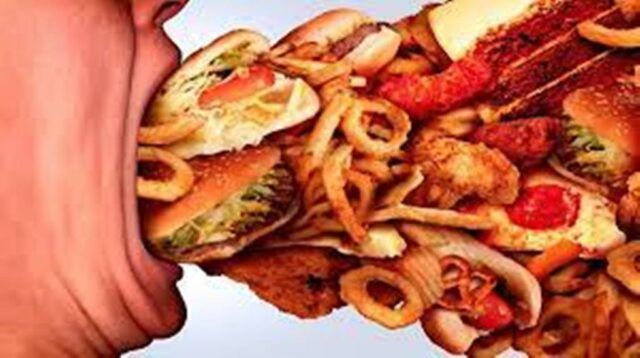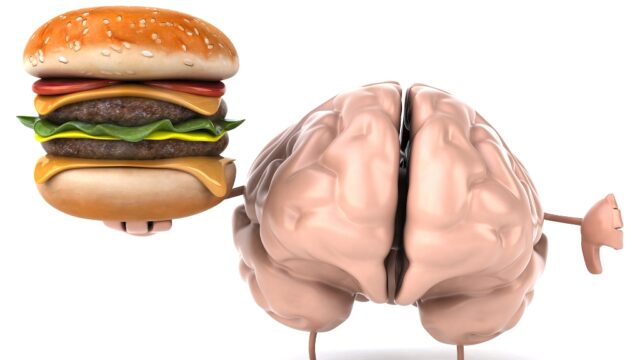Emotional, irrational, and even explosive comments made in public conversations have increased in recent years.For example, politicians are subjected to insults during legislative debates and scientists receive threatening and abusive emails and Twitter messages.What’s going on? The escalation of angry rhetoric is sometimes attributed to social media. But is there something else that is altering our communication style?
As researchers in the field of nutrition and mental health, and authors of The Better Brain, we see that many people in our society experience brain starvation, which affects their cognitive functions and emotional regulation.
Ultra-processed products
Obviously, we are not deficient in macronutrients: the North American population tends to consume enough protein, fat (although not usually the best fats) and carbohydrates (usually not the good complex carbohydrates).But we are lacking micronutrients (minerals and vitamins), because we consume ultra-processed products.
Ultra-processed products include things like sodas, packaged snacks, sugary breakfast cereals, and nuggets (chicken nuggets). In general, these contain negligible amounts of micronutrients.
Serious statistics
Three analyzes published by the Canadian Community Health Survey in 2004 and the US National Health and Nutrition Analysis Survey in 2018 revealed very dire statistics.
In Canada, in 2004 40% of the calorie intake of all ages came from ultra-processed products. In the US, 67% of what children between the ages of 2 and 19 consumed in 2018. And 57% of what was consumed by adults were ultra-processed products.
Most of us are aware that diet is a major issue in physical health. Because the poor quality of the diet is associated with chronic diseases such as obesity, diabetes or cardiovascular diseases.
And brain health?
The public is less aware of the impact of nutrition on brain health.Since food choices in our society have leaned heavily towards ultra-processed products, we need to know the substantial scientific evidence that micronutrient intake influences mental health.Especially in irritability, explosive rage, and unstable mood.The scientific evidence is vast, although it is mentioned so little in the media that not many people are familiar with it.
More than a dozen studies from countries such as Canada, Spain, Japan and Australia have shown that people who have a healthy diet of whole foods have fewer symptoms of depression and anxiety than those who eat a poor diet (mostly ultra-processed products).Correlated studies cannot prove that nutritional decisions are the cause of mental problems.
For that we turn to convincing longitudinal studies in progress, in which the participants have no apparent mental problems. They are also evaluated according to their health and their eating patterns and are followed over time.

Some of the results have been surprising
In a study of about 89,000 people in Japan with 10-15 years of follow-up, the suicide rate among those who ate a whole-food diet was half that of those who ate less healthy diets. And it highlighted an important new direction that has yet to be addressed by current suicide prevention programs.
In Canada, similar results show how children’s feeding, as well as following guidelines on exercise and screen time, predicted which children between the ages of 10 and 11 would end up being referred for a diagnosis of mental disorder within two years following.
Children and nutrition
Therefore, nutrition education should be one of the first lines of treatment for children in this situation.Irritability and unstable mood frequently characterize depression, so it is relevant that multiple independent studies have shown that teaching patients with depression, who had relatively poor diets, how to switch to whole foods typical of the Mediterranean diet, led to improvements significant.A Mediterranean diet is typically high in whole grains, fruits, vegetables, nuts, legumes, shellfish, and unsaturated fats like olive oil.
In one of those studies, about a third of the people switched to a whole food diet. In addition to following their regular treatment, they noticed that their depression was in remission after 12 weeks.That remission in the control group that received regular treatment but did not change diet occurred in fewer than 1 in 10 participants.
The group that followed a whole food diet also reported a savings of nearly 20% in their food budget.This last detail helps dispel the myth that consuming ultra-processed products is a way to save money.

Irritability and explosive rage
The evidence that irritability, explosive rage, and unstable mood can be resolved with increased micronutrient intake comes from studies.These reviews evaluate micronutrient supplementation in the treatment of mental health problems.
Increased public awareness of this issue is limited by the unfortunate search for magic solutions: studies of only one nutrient at a time.That’s a common way of thinking about causation (for problem X, you need medication Y), but that’s not how our brains work.
To support brain metabolism, our brains require at least 30 micronutrients. This to ensures the production of neurotransmitters such as serotonin and dopamine, as well as to break down and dispose of metabolic by-products.
Many studies of multi-nutrient treatments have found better regulation of mood and a reduction in irritability and explosive rage.Even in randomized placebo-controlled investigations of children with attention deficit hyperactivity disorder and mood dysregulation.The evidence is clear: a well-nourished population is better able to withstand stress.Hidden brain hunger is a modifiable factor that contributes to emotional outbursts, aggression, and even loss of civility in public dialogue.


